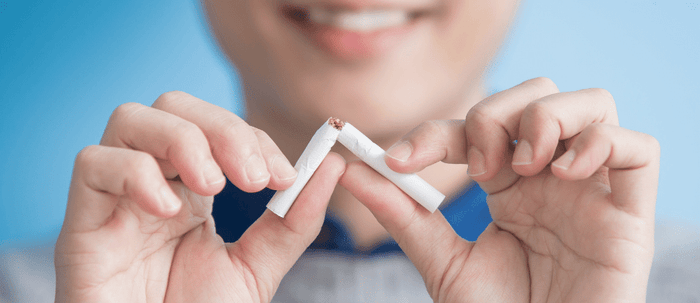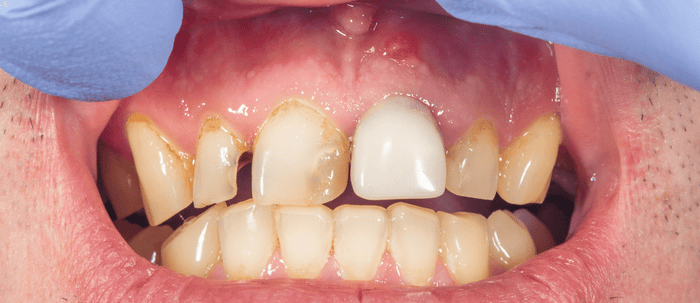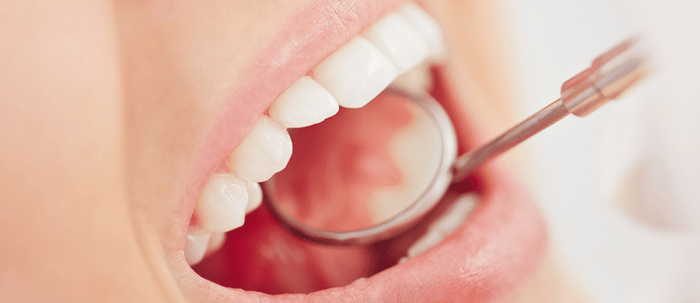The Effects Of Smoking On Oral Health

Most people are now aware that smoking is bad for their health. It can cause many different medical problems and, in some cases, fatal diseases. However, many people do not understand the damage that smoking does to their mouth, gums, and teeth.
Smoking can lead to tooth staining, tooth loss, gum disease, and in more severe cases smoking can cause mouth cancer.
Why are my teeth stained?
A side effect of smoking is staining on the teeth due to the nicotine and tar in the tobacco. It can make your teeth yellow very quickly, and heavy smokers often complain that their teeth are almost brown after years of smoking.
How will smoking affect my gums and teeth?
People who smoke are more likely to produce bacterial plaque, which leads to gum disease. The gums are affected because smoking minimises oxygen in the bloodstream, so the infected gums do not heal. Not only does smoking cause gum disease but it causes more dental plaque causing the gum disease to get worse more quickly than in non-smokers. Gum disease is still the most common cause of tooth loss in adults.
How is smoking linked with cancer?
Most people know that smoking can cause lung and throat cancer, but many people do not realise that it is one of the main causes of mouth cancer too. Every year thousands of people die from mouth cancer brought on by smoking.
Mouth cancer can appear in different forms and can affect all parts of the mouth, tongue, and lips. It first appears as painless mouth ulcers that do not heal normally. A white or red patch in the mouth can also develop into cancer. Be aware of any unusual lumps in your mouth or jaw area and any persistent hoarseness. It is important to visit your dental team or doctor if these areas do not heal within three weeks. If you are not sure, arrange for a check-up just in case.
Are there special dental products I can use?
There are certain kinds of toothpaste for people who smoke but they are a little more abrasive than ordinary brands of toothpaste and you should use them with care. Your dentist may recommend that you use these. There are several types of ‘whitening' toothpaste on the market and whilst they do not affect the natural colour of your teeth, they may be effective at removing staining, and therefore may improve the overall appearance of your teeth.
What about mouthwashes?
People who smoke may find they are more likely to have bad breath. Fresh breath products such as mouthwashes may help to disguise the problem in the short term but will not cure it.
What can my dentist do?
Your dentist will carry out a regular examination to make sure that your teeth and gums and whole mouth are healthy.
Your dental team will also examine your cheeks, tongue, and throat for any signs of other conditions that may need more investigation.
They may also be able to put you in touch with organisations and self-help groups that will have the latest information to help you stop smoking.
It is extremely important to maintain your oral hygiene daily.
- Stop smoking and cut down on the amount of alcohol you drink.
- Eat a balanced, healthy diet with at least five portions of fruit and vegetables a day as this can help protect against many other cancers.
- Visit your dental team regularly, as often as they recommend.
- Brush your teeth twice a day, do not forget to floss.
Related Blogs:



